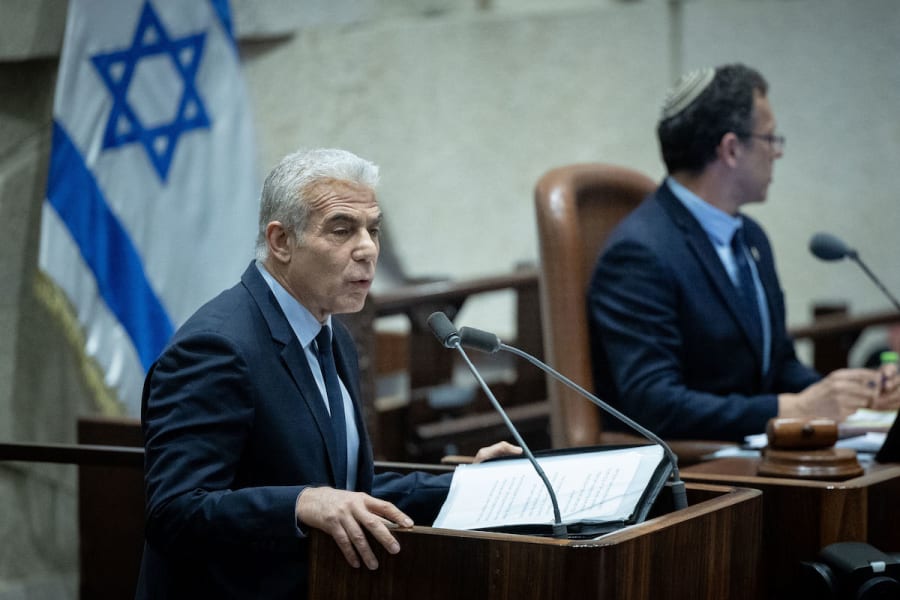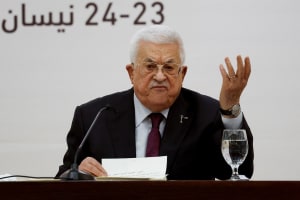Likud rejects Lapid's demands for judicial reform freeze as precondition for negotiations
Opposition and coalition continue to blame each other for unwillingness to reach broad consensus

Israeli Prime Minister Benjamin Netanyahu’s Likud party rejected calls by opposition leader Yair Lapid to put an 18-month freeze on judicial reform legislation as a precondition to resuming negotiations.
Lapid told the Knesset on Sunday that the coalition would need to vote for an 18-month freeze on any reform legislation before he would trust its promise.
“As long as there is no legislative freeze, there is no point and no sense to talk about other laws or agreements, because it is quite clear that the government will run away again at the last minute,” Lapid told the Knesset, just before it left for summer recess.
The Likud party quickly responded: “Yair Lapid is ready to talk with Abu Mazen [Palestinian Authority President Mahmoud Abbas] without preconditions, but for Likud he is setting out a list of preconditions for talks.”
“We invite Lapid to enter into negotiations today so that we can all reach a broad agreement,” the party said in a statement.
Over the weekend, Lapid claims the opposition had made a deal with Netanyahu, but accused the prime minister of backing down after National Security Minister Itamar Ben Givr and Justice Minister Yariv Levin nixed it.
“On Monday, both the president and I thought there was an agreement ready to be signed. But then Yariv Levin and Ben Gvir slammed their fists on the table and threatened to dissolve the government,” Lapid claimed. “The prime minister panicked, surrendered to them.”
Lapid also said the coalition government should be the one to prove its commitment to consensus.
“My job, and the job of the entire opposition, is not to organize visits for Netanyahu at the White House and not to calm down the rating agencies to whom Netanyahu lied. If the government wishes to reach a wide consensus, it has to prove it,” Lapid told the Knesset.
Netanyahu said he will continue to seek broad consensus with the opposition during the Knesset summer recess, even expressing a willingness to delay further judicial reform legislation until November.
He also accused the opposition of stirring up fears, saying his government would preserve Israel as “a strong democracy.”
“We all agree that Israel must remain a strong democracy, that it will continue to protect everyone’s individual rights, that it will not become a halachic [rabbinic law] state,” Netanyahu said during an address to the nation last week.

The All Israel News Staff is a team of journalists in Israel.














